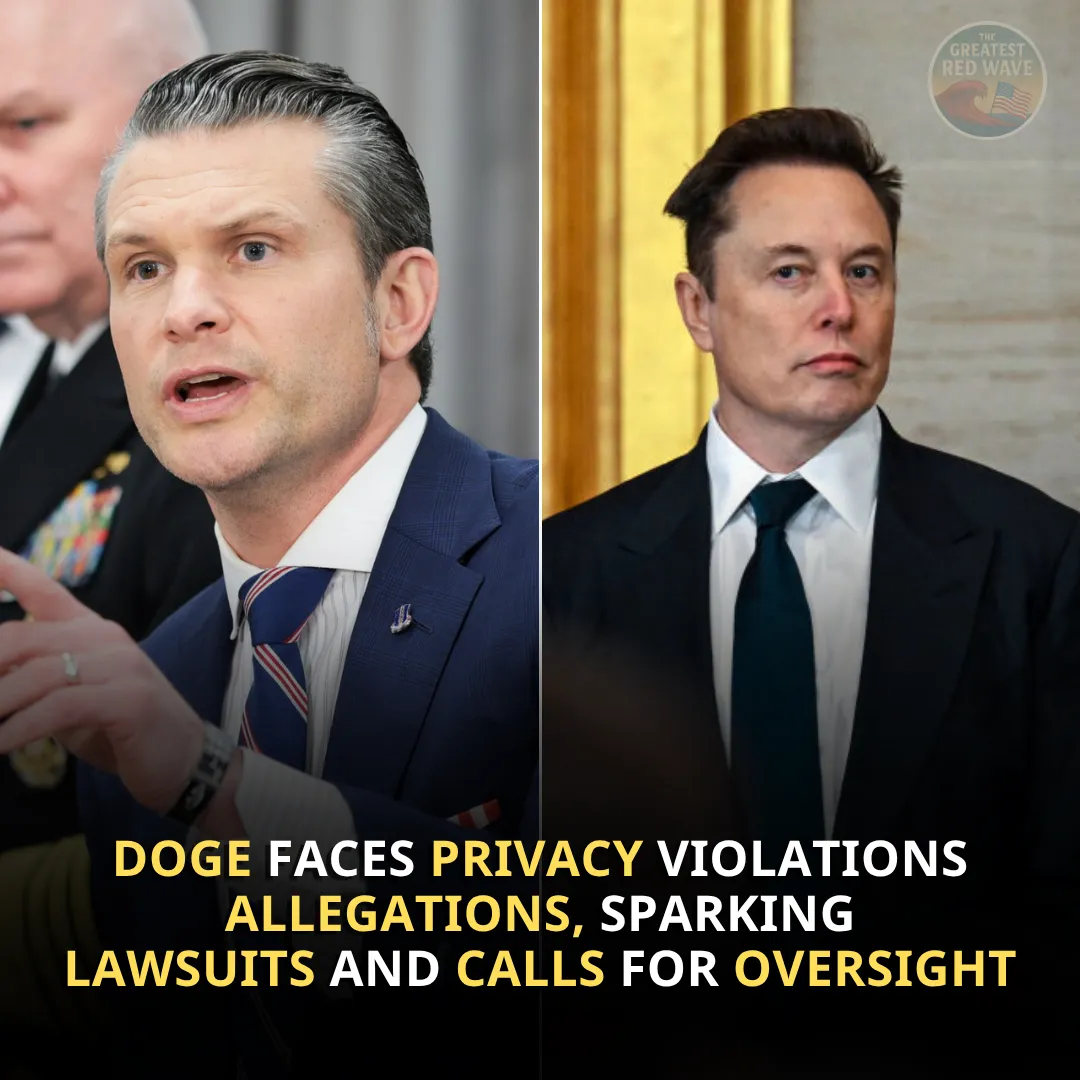
In a dramatic move on Wednesday, Senator Chuck Grassley (R-Iowa) revealed a trove of 197 subpoenas issued by the Biden administration’s FBI under what he described as the politically motivated Arctic Frost investigation.
This investigative operation, according to Grassley, was a vehicle for partisan abuse by FBI agents and Department of Justice (DOJ) prosecutors, targeting Republican figures, entities, and organizations as part of a broader effort to undermine the political opposition.
Grassley’s latest disclosure sheds light on what many conservatives are now calling a “Biden administration enemies list” used to surveil and investigate GOP lawmakers and their allies during the 2020 election cycle.
“The Arctic Frost probe was nothing more than a fishing expedition," Grassley stated emphatically at a press conference, echoing concerns that the investigation was part of a wider scheme to politicize the justice system.
Grassley’s claim about the investigation’s lack of a legitimate basis is based on his belief that it was an overreaching attempt to target the Republican political apparatus through legal means.
At the center of the scandal, the subpoenas included requests for confidential, nonpublic grand jury material that Grassley obtained through whistleblower disclosures.
The subpoenas demanded communications between media companies, including prominent conservative outlets such as Fox News, CBS, Sinclair, and Newsmax, as well as outreach to members of Congress and their aides.
The breadth of these subpoenas also extended to requests for extensive financial information from conservative organizations, raising alarm about the invasive nature of the probe.

Grassley’s disclosure paints a troubling picture of how far-reaching the Arctic Frost operation may have been. The timing of the investigation, which was conducted before the special counsel investigation led by Jack Smith, raised concerns about the legitimacy of the federal government’s efforts to investigate perceived political enemies.
While Smith’s investigation would later result in charges against President Donald Trump, Grassley argues that Arctic Frost was a precursor to the larger investigation that ultimately saw Trump face four charges in 2023.
According to Grassley, this earlier operation is where the real politicization of justice began, creating the conditions for the larger investigations that have since dominated the political discourse.
As Grassley continued to release documents related to the Arctic Frost probe, he underscored his belief that the investigation was fundamentally flawed and politically charged.
The senator argued that the motivations behind the probe were not rooted in national security concerns or genuine criminal investigations, but rather in an attempt to undermine Republican figures and block Trump’s political influence.
Grassley’s view is shared by a growing number of Republican lawmakers, who see the Arctic Frost investigation as part of a broader pattern of government overreach and partisan attacks.
Senator Ron Johnson (R-Wis.) joined Grassley in condemning the Arctic Frost investigation, calling it “nothing short of a Biden administration enemies list.”
Johnson echoed Grassley’s concerns, suggesting that the extensive nature of the subpoenas and the broad targeting of Republican officials and their associates represented a clear abuse of government power. “This is a classic example of government overreach,” Johnson said, “where the justice system is used as a tool for political warfare.”

Among the most troubling revelations were subpoenas demanding phone records from eight Republican senators, including Senator Ted Cruz (R-Texas).
These subpoenas did not seek the contents of phone calls, but instead requested metadata on when calls were made and to whom. Cruz, who was among those targeted, publicly expressed his outrage over the move, revealing that his phone provider, AT&T, initially complied with the request without informing him.
Cruz further revealed that a federal judge had ordered AT&T not to disclose the subpoena to him for an entire year, further fueling concerns about the lack of transparency in the investigation.
“I was among the senators targeted, and I’m not alone,” Cruz said at the press conference. “This is an abuse of power. We’re going to get the answers about every person who signed off on this, and mark my words, there will be accountability.”
Cruz’s remarks reflect the growing anger among Republicans over the perceived politicization of the justice system, and the push for answers continues to intensify in Congress. Cruz, alongside Grassley and Johnson, has vowed to ensure that those responsible for what they view as abuses of power will be held accountable.
While the Arctic Frost investigation was an early precursor to Jack Smith’s special counsel investigation into Trump’s alleged attempts to overturn the 2020 election results, Smith’s probe has been marred by its own challenges.
Smith’s team filed criminal charges against Trump in 2023, accusing him of attempting to illegally interfere with the election results. However, the case faced significant legal hurdles, particularly after Trump’s victory in the 2024 election.
Under DOJ guidelines, a sitting president is typically immune from prosecution, and as a result, Smith was forced to dismiss the charges.

The controversy surrounding Arctic Frost is part of a larger national conversation about the politicization of the justice system and the weaponization of government agencies to target political opponents.
For many conservatives, the release of the subpoenas is further evidence that the Biden administration has sought to exploit the justice system for partisan purposes.
“This is an unprecedented abuse of power,” said one Republican strategist. “We are seeing the weaponization of the federal government in real time.”
Democratic leaders, however, have largely dismissed these claims, arguing that the investigation was necessary to safeguard the integrity of the U.S. electoral system.
They contend that the Arctic Frost operation and subsequent investigations were legitimate attempts to ensure that foreign interference did not influence the outcome of the 2020 election and to investigate any potential illegal actions taken by Trump and his allies.
“The investigations into Russian interference and the 2020 election were vital to protecting our democracy,” said Senate Majority Leader Chuck Schumer. “The American people deserve to know the truth, and that’s exactly what these investigations sought to uncover.”
Despite the Democratic defense, Republicans remain steadfast in their accusations of partisan overreach, with many calling for immediate hearings and accountability.
Grassley, in particular, has emphasized that the release of the subpoenas is just the beginning. He has indicated that the Senate Judiciary Committee will continue to investigate the Arctic Frost operation and push for more transparency from the Biden administration and the DOJ.

“The American people deserve to know the truth about what happened during the 2020 election and how the justice system was used to target political opponents,” Grassley said. “We will not stop until those responsible for these abuses are held accountable.”
The political fallout from the Arctic Frost investigation is far from over. As Republicans push for further investigations, Democrats are digging in their heels, arguing that the focus should remain on ensuring the integrity of future elections and holding those responsible for foreign interference accountable.
Meanwhile, the public remains divided, with many Americans expressing concern over the growing partisan divide and the increasing use of government agencies to target political opponents.
The debate over Arctic Frost and its implications for U.S. democracy is likely to continue to unfold over the coming months, as lawmakers on both sides of the aisle press for answers.
For now, the investigation remains one of the most politically charged issues in Washington, with both parties digging in their heels and accusing each other of using the justice system as a political weapon. As Grassley, Cruz, and others continue their push for accountability, the public’s trust in the justice system and its impartiality hangs in the balance.



